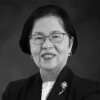In the 1990s and earlier, only lawyers were allowed to prosecute trademark applications in the Philippines, unless the applicant filed its own application. Over the years and almost unknowingly, the Intellectual Property Office of the Philippines (IPOPHL) accepted trademark applications from anyone – lawyers and non-lawyers alike – so long as authorisation by way of a power of attorney or appointment of a resident agent was submitted. Then the IPOPHL started to receive enquiries from new applicants requesting a list of accredited agents, and there was no such list.
To recognise the professions related to intellectual property (IP), and for the protection of the public, considering the trends and developments in the field of IP, the IPOPHL conducted a public consultation in September 2023, resulting in the draft of the memorandum circular entitled Establishing a Recognition System for Trademark Representatives by the Intellectual Property Office of the Philippines and Providing for its Implementing Rules and Regulations. The memorandum circular is under final review and expected to be issued by the middle of 2024.
The following are the salient points of the draft rules:
The rules apply only to natural persons who are residents of the Philippines.
The classification of trademark representatives will be as follows:
Recognised trademark agents who are non-lawyers; and
Recognised trademark attorneys who are lawyers qualified to practise law in the Philippines as allowed by the Supreme Court.
The scope of services for recognised trademark agents – conducting trademark searches; properly classifying goods and services based on the Nice Classification; filing, prosecuting, and defending trademark applications (i.e., under the national and Madrid systems) at the examination level; using online trademark tools; responding to the Bureau of Trademarks’ official actions; complying with maintenance requirements (e.g., declaration of actual use and renewals); and all other pertinent activities and services on trademark searches, filing, and maintenance. Recognised trademark agents cannot perform the following services, which are reserved for recognised trademark attorneys: filing, prosecuting, and defending third-party observations before the Office of the Director of the Bureau of Trademarks; filing, prosecuting, and defending appeals or petitions for review before the Office of the Director of the Bureau of Trademarks; filing, prosecuting, and defending inter partes cases and intellectual property violation cases before the Office of the Director of the Bureau of Legal Affairs; filing, prosecuting, and defending appeals or petitions for review before the Office of the Director General.
Adherence to the list of services allowed to be performed by recognised trademark representatives – providing services or representation to clients beyond the scope of the above-stated services may be grounds for the suspension or cancellation of recognition.
Recognised trademark attorneys can perform all the services allowed to be undertaken by recognised trademark agents as authorised by the applicant or registrant, and those reserved for them specifically.
The system of recognition is:
Mandatory for non-lawyers and is a prior condition before appearing in any office under the IPOPHL; and
Voluntary for lawyers and is not a prerequisite to appear before any office under the IPOPHL, subject to existing laws, rules, and regulations.
General qualifications of a recognised trademark representative – in addition to the educational requirements, the applicant must have undergone the Trademark Representative Admission Course (TRAC), or any national or international training on trademarks, and passed the Trademark Assessment Test. The TRAC has been scheduled for March 18–22 and March 25–26. Those who have been in trademark practice for 20 years or more, provided the relevant proof is submitted, shall be exempted from undergoing the training and taking the examination.
A register of recognised trademark representatives shall be created, which shall include the names and relevant details of all individuals recognised by the Board. Inclusion in the register shall be for a period of time and subject to renewal, as provided for under the rules and regulations.
Effect of non-inclusion in the register – non-recognition or non-inclusion in the register shall prevent a trademark agent from transacting before the IPOPHL. An application filed by a non-recognised trademark agent shall be given a filing date, provided all the other requirements are complied with, but all communications of the IPOPHL shall be forwarded directly to the applicant. A non-recognised trademark attorney shall not be prevented from transacting with the IPOPHL. However, the inclusion of trademark attorneys in the register is an additional indication that those listed comply with the qualifications required in the implementing rules and regulations.
The Trademark Representatives Recognition Board – the director general of the IPOPHL shall constitute a five-member Trademark Representatives Recognition Board, which shall implement the rules.












